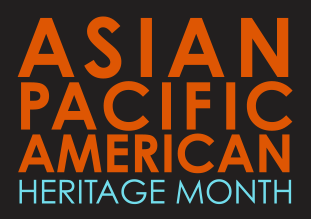May is an important month for Asian America: the Asian Pacific American Heritage Month is a time when our voices and narratives are centered and celebrated on social media, in museums, in schools. May is also an important month for Asian American history: in 1843, the first Japanese immigrant arrived in the United States. In 1869, Chinese immigrants completed the first Transcontinental Railroad. That is why George W. H. Bush signed APAHM into existence. And while the important contributions of Asians and Asian Americans to the fabric of the United States is vital, it can become all too easy to forget historical injustices, such as the Chinese Exclusion Act and Executive Order 9066, whose legacies continue to affect us today. In the age of Trump, the Muslim ban, and mass deportation, this Asian Pacific American Heritage Month must also be a time for our communities to unite for immigration justice.
One hundred and forty-eight years ago this month marks the completion of the First Transcontinental Railroad of the United States, 1,776 miles of track spanning the rugged mountains and harsh deserts of the Sierras. Four thousand immigrants, majority Chinese and some Irish, toiled for six years to connect the Pacific and Atlantic coasts. The establishment of this railroad would transform the United States economy. But despite the contributions of Chinese immigrants to the development of our nation, once their labor was no longer needed, Chinese men were criminalized and viewed as dangerous They were segregated, prohibited from entering certain towns after sundown, and denied citizenship through legislation like the Chinese Exclusion Act of 1882. Such policies expanded to apply to other ethnic groups such as Japanese, Indian, and Filipino immigrants, resulting in discrimination, deportation, and later, internment, even for American-born citizens of Japanese descent.
Today, exclusion and criminalization of immigration has continued to happen, but this time, the focus has shifted to Latinx communities. Undocumented immigrants are only viewed as valuable if they are working the low-wage jobs that U.S. citizens don’t want to do. National discourse around immigrants centers on jobs, wages, taxes, and economic worth, or even academic achievement, but not on the humanity of parents who sought a better life for their children, or of refugees who survived war and trauma. People who are American in all but citizenship are being deported to countries to which they have no connections or prospects, without regard for what might happen to them when they arrive or what might happen to the family they leave behind.
Despite the fact that Asians are the second largest population of undocumented immigrants, Asian Americans have been invisible from the conversation. I don’t mean to erase the work that many Asian American individuals and organizations have committed to issues of immigration justice, or the individuals who stay hidden out of caution for their own status. However, since Asian immigrants have escaped the spotlight of detention and deportation and Latinx communities are being scapegoated, Asians, particularly citizens, are not speaking out against ICE’s recent aggressive tactics or uniting in solidarity with members of their community who are vulnerable. As a community, it is our time to not only celebrate ourselves and one another, but to stand up and take a stand for ourselves and for those who are experiencing what our communities once did, and continues, to weather.



